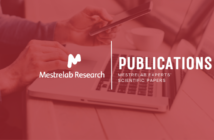| Title: | A new strategy for the computer-assisted development of reversed-phase liquid chromatography separation methods of unknown sample mixtures |
| Authors: | R. Cela, S. Triñanes & C. Cobas |
| Date: | Published: 18 August 2021 |
| Reference: | Online article - Analytical and Bioanalytical Chemistry, 414, 587–600 (2022) |
| DOI: | https://doi.org/10.1007/s00216-021-03538-7 |
| Download link: | https://link.springer.com/article/10.1007/s00216-021-03538-7 |
ABSTRACT
A new strategy for the computer-assisted methods development in the reversed-phase liquid chromatographic separations of unknown sample mixtures has been developed using the latent spectral information in chromatogram raw data files of appropriately designed experiments, rather than resorting to elemental information functions (e.g., the number of peaks in chromatograms or similar criteria). The strategy developed allows unification of the approach for samples of both known and unknown composition and, thus, provide a general strategy for computer-aided tools in the chromatography laboratory. The operation principle of this strategy departs from extracting the spectra of components in the mixture chromatograms by resorting to multivariate curve resolution-alternating least squares (MCR-ALS). This technique allows the estimation of the true spectra for the individual components except when they have identical spectra or are fully overlapped. Thus, a convenient experimental design will try to perform separations of the sample mixture having at least partial resolution of components in some runs. This will allow estimating the spectra of components and, then, assign these components to the peaks in each run chromatogram. In this way, a retention model can be built for each component so computerized optimization process can be developed to provide the chromatographer with the best possible separation programs. Following this approach, strategies for sample mixtures of known and unknown composition are only different in the need of an initial spectrum discovery process for unknown mixtures and therefore a real general approach for the computer-assisted LC methods development is now available for the first time.


